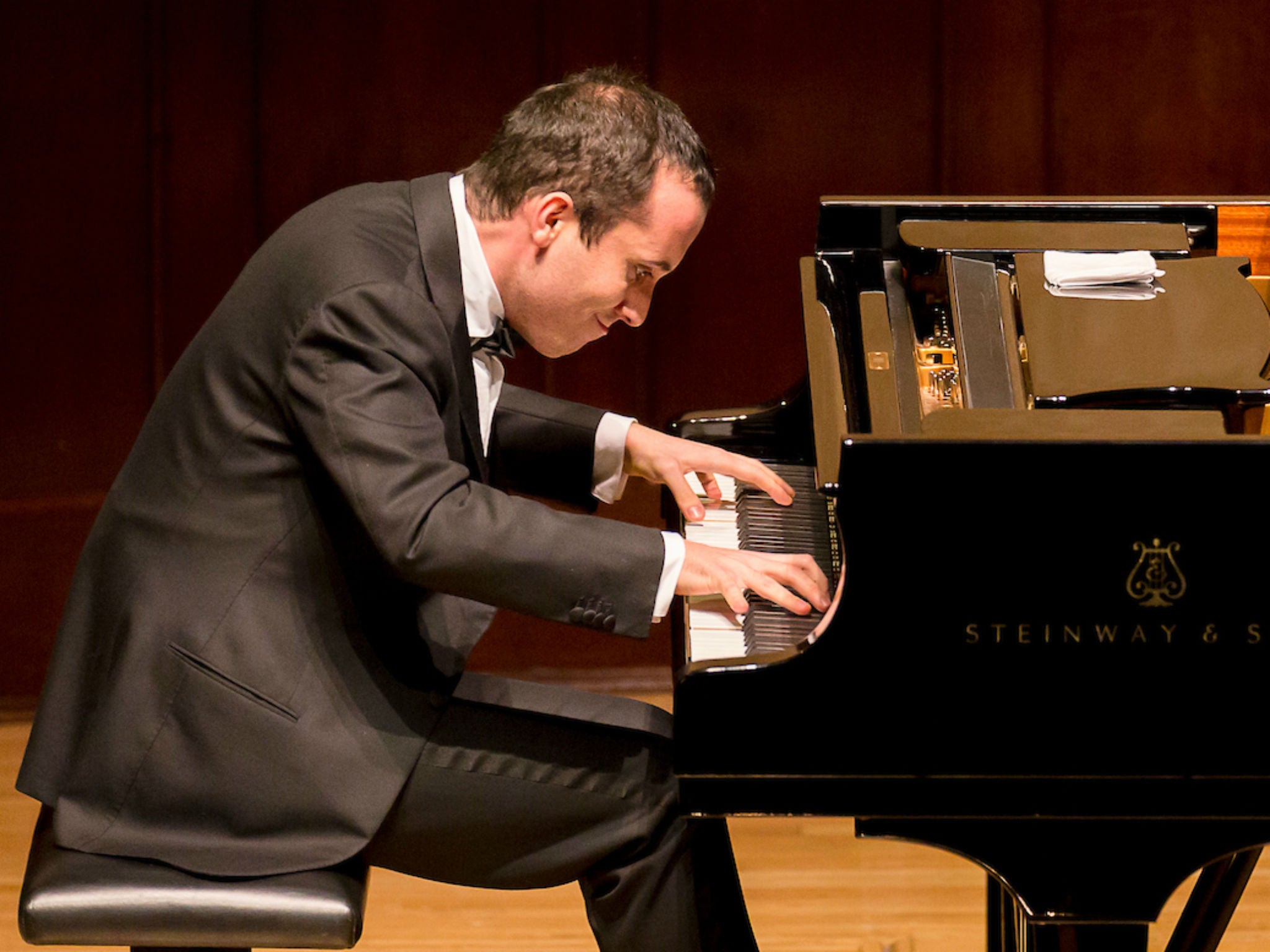Igor Levit, Wigmore Hall, London, review: this recital is a hoot
Igor Levit performs Frederic Rzewski's new piano work Ages – with added whistling, hooting, and a kazoo

Your support helps us to tell the story
From reproductive rights to climate change to Big Tech, The Independent is on the ground when the story is developing. Whether it's investigating the financials of Elon Musk's pro-Trump PAC or producing our latest documentary, 'The A Word', which shines a light on the American women fighting for reproductive rights, we know how important it is to parse out the facts from the messaging.
At such a critical moment in US history, we need reporters on the ground. Your donation allows us to keep sending journalists to speak to both sides of the story.
The Independent is trusted by Americans across the entire political spectrum. And unlike many other quality news outlets, we choose not to lock Americans out of our reporting and analysis with paywalls. We believe quality journalism should be available to everyone, paid for by those who can afford it.
Your support makes all the difference.It isn’t often critics put their money where their mouth is and commission new works, but that’s what Annette Morreau has generously done – in tandem with Wigmore Hall – to induce Frederic Rzewski to compose a major new work, Ages. And it was entirely appropriate that they should have entrusted its world premiere to the pianist who has championed this American composer’s work, Igor Levit.
Rzewski’s oeuvre is predominantly social-historical. His best-known piano work is The People United Will Never Be Defeated, variations on a song by the Chilean leftist Sergio Ortega which Levit has recorded.
This new work, the composer wrote in a programme note, has been prompted partly by the approach of his eightieth birthday, and partly by his sense of history. Morreau had originally asked for a set of variations on Purcell’s Music for a While, and although that was not forthcoming there are moments when its gentle cadences shine through.
One American critic has described Rzewski as “a granitically overpowering piano technician, capable of depositing huge boulders of sonoristic material across the keyboard without actually wrecking the instrument”. And indeed one shuddered at Levit’s opening flourish, which was to slam the keyboard lid with all his strength; after that explosion we listened to the harmonic echoes dying slowly away, before he launched into a long series of gently ascending major and minor triads.
Lasting just over an hour, the piece was in five movements, but it came across as one single labyrinthine rumination in which violence alternated with restraint, grand pianistic virtuosity with child-like playfulness. A kazoo, a bird-whistle, a baby-call, and a recorded lamb’s bleat were just some of a battery of unexpected materials deployed, with Levit providing more by sighing or hooting like the wind. The result was a tissue of effects, a sequence of fleeting dreams, with delicate hints of Bach and Purcell indicating a philosophical underpinning.
In his note Rzewski made reference to Mendelssohn’s Songs Without Words which he likened to “mystical niggunim” – Hasidic melodies for meditation. Levit played three of these, before launching into Ronald Stevenson’s heroic transcription of the Adagio from Mahler’s Symphony No 10. This was a recital like no other.
Join our commenting forum
Join thought-provoking conversations, follow other Independent readers and see their replies
Comments